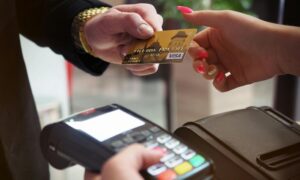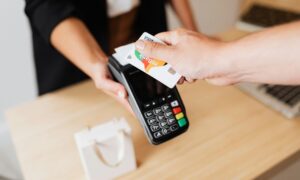Digital wallets have transformed the way we handle money, making transactions easier and safer. These modern payment solutions are not just convenient; they also offer robust security features that protect users’ financial information. As we explore digital wallets, we will uncover their workings, benefits, and the challenges they face in today’s digital landscape.
Key Takeaways
- Digital wallets securely store payment information, allowing for quick and easy transactions.
- They use encryption and biometric verification to enhance security and protect user data.
- Various types of digital wallets cater to different needs, from online shopping to peer-to-peer payments.
- Digital wallets promote financial inclusion by providing access to banking services for underserved communities.
- Despite their advantages, digital wallets face challenges like limited acceptance and potential security risks.
Understanding Digital Wallets
Definition and Overview
A digital wallet, also known as an electronic wallet, is a software application that allows users to store their payment information securely on their devices. This means you can make purchases without needing to carry physical cards. Digital wallets can be accessed on mobile devices or computers, making them very convenient for shopping.
How Digital Wallets Work
Digital wallets work by securely storing your payment details, such as credit and debit card information. When you make a purchase, the wallet uses encryption to protect your data. This means that your actual card details are not shared with the seller, reducing the risk of fraud. Here’s how it generally works:
- Store Information: You enter your payment details into the wallet.
- Make Payments: When you shop, you can pay directly from your wallet.
- Secure Transactions: The wallet uses encryption to keep your information safe.
Types of Digital Wallets
There are several types of digital wallets available today, each with unique features. Here are some popular ones:
- Mobile Wallets: Used primarily on smartphones (e.g., Apple Pay, Google Wallet).
- Web Wallets: Accessible via web browsers (e.g., PayPal).
- Cryptocurrency Wallets: Designed for storing digital currencies (e.g., Bitcoin wallets).
Digital wallets are becoming essential tools in our daily lives, offering a secure and convenient way to manage payments. They are especially beneficial for those in areas with limited access to traditional banking services, promoting financial inclusion.
Key Features of Digital Wallets
Digital wallets have become essential tools in our daily lives, offering a range of features that enhance both security and convenience. Here are some of the key features:
Encryption and Tokenization
Digital wallets use encryption to protect your sensitive information. When you make a payment, your data is converted into a unique token. This means that even if a store’s system is hacked, your actual payment details remain safe. The store only receives the token, not your credit card or bank information.
Biometric Authentication
To access your digital wallet, you often need to use a PIN or biometric data, such as a fingerprint or facial recognition. This adds an extra layer of security. If your phone is lost or stolen, it becomes very hard for someone to access your wallet without the correct biometric information. Additionally, many wallets allow you to disable access remotely, further protecting your account.
Integration with Apps and Websites
Digital wallets can easily connect with various apps and websites, making online shopping and payments seamless. They can store not just payment methods but also gift cards, loyalty cards, and even event tickets. This integration simplifies transactions and enhances the overall user experience.
Fraud Prevention and Real-Time Monitoring
Digital wallets are equipped with advanced systems that monitor transactions in real-time. These systems can quickly identify unusual activities, helping to prevent fraud. If a suspicious transaction occurs, you are often notified immediately, allowing you to take action quickly. This real-time visibility gives you better control over your finances.
Digital wallets offer a combination of security, convenience, and integration that makes them a popular choice for modern payments. They not only protect your financial information but also enhance your shopping experience, making transactions easier and faster.
Top Digital Wallets in the Market
Digital wallets have become a popular choice for making payments, offering both convenience and security. Here’s a look at some of the top digital wallets available today:
PayPal
PayPal is one of the most widely used digital wallets globally. It allows users to make secure transactions online and in-person. With features like buyer protection and easy integration with e-commerce sites, it’s a trusted option for many.
Key Features:
- Easy setup and use
- Fraud detection systems
- One-touch payments
Apple Pay
Apple Pay is designed for users of Apple devices. It enables contactless payments in stores and online, using Face ID or Touch ID for security.
Key Features:
- No need for physical cards
- Works seamlessly with Apple apps
- High level of security
Google Wallet
Google Wallet allows users to store their payment information securely and make quick payments. It’s widely accepted and integrates well with various services.
Key Features:
- Easy to add funds
- Supports multiple payment methods
- User-friendly interface
Samsung Pay
Samsung Pay is another popular option, especially for Samsung device users. It supports both in-store and online payments, making it versatile.
Key Features:
- Works with most payment terminals
- Offers rewards for users
- High security with biometric authentication
Amazon Pay
Amazon Pay allows users to make payments on partner websites using their Amazon account. It’s known for its low transaction fees and ease of use.
Key Features:
- No monthly fees
- Supports multiple currencies
- Quick registration process
Comparison Table
Digital Wallet |
Key Features |
Security Level |
|---|---|---|
| PayPal | Buyer protection, easy integration | High |
| Apple Pay | Contactless payments, Face ID | Very High |
| Google Wallet | Multiple payment methods, user-friendly | High |
| Samsung Pay | Works with most terminals, rewards | High |
| Amazon Pay | Low fees, quick registration | High |
These digital wallets are leading the way in the UK mobile wallet market, making transactions easier and more secure for users. As the trend continues to grow, these wallets are expected to play a significant role in the future of payments.
Security Measures in Digital Wallets
Encryption Techniques
Digital wallets use encryption to protect your sensitive information. When you make a payment, your data is converted into a secure code, known as a token. This means that even if a store’s system is hacked, your actual card details remain safe. The store only receives a token, not your personal information.
Biometric Authentication
To access your digital wallet, you often need to use a PIN or biometric data, like a fingerprint or facial recognition. This adds an extra layer of security. If your phone is lost or stolen, it becomes very hard for someone else to access your wallet without your biometric information. Additionally, many wallets let you disable access remotely, providing further protection.
Fraud Prevention and Real-Time Monitoring
Digital wallets are equipped with advanced systems that monitor transactions in real-time. These systems can quickly identify unusual activities using machine learning. If a suspicious transaction occurs, you are often notified immediately, allowing you to act quickly. This real-time monitoring helps you keep track of your spending and detect any unauthorised transactions sooner.
Security Feature |
Description |
Benefits |
|---|---|---|
| Encryption | Converts sensitive data into a secure code (token) | Protects personal information |
| Biometric Authentication | Requires fingerprint or facial recognition for access | Prevents unauthorised access |
| Real-Time Monitoring | Monitors transactions for unusual activities | Quick detection of fraud |
Benefits of Using Digital Wallets

Convenience and Accessibility
Digital wallets offer great convenience for users. They allow you to make payments quickly and easily from your mobile device or computer. Here are some key points:
- Pay anytime, anywhere: You can complete transactions without needing to visit a physical store.
- No need for cash: Digital wallets reduce the hassle of carrying cash or cards.
- Easy access to funds: You can store multiple payment methods in one place.
Enhanced Security
Using digital wallets can provide better security for your financial information. Here’s how:
- Encryption: Your data is protected through advanced encryption methods, making it hard for hackers to access.
- Biometric authentication: Many wallets use fingerprints or facial recognition to ensure only you can access your account.
- Fraud monitoring: Digital wallets often have systems that monitor transactions in real-time, alerting you to any suspicious activity.
Financial Inclusion
Digital wallets can help broaden access to financial services, especially for those without traditional bank accounts. This includes:
- Access for the unbanked: People in underserved areas can use digital wallets to make payments and manage money.
- Lower fees: Transactions through digital wallets often have lower fees compared to traditional banking methods.
- Simplified transactions: Digital wallets can make it easier for people to engage in commerce, boosting local economies.
Digital wallets not only make payments easier but also enhance security and promote financial inclusion, making them a valuable tool in today’s digital economy.
Challenges and Limitations
Acceptance Issues
Despite the growing popularity of digital wallets, they are not universally accepted. Many smaller shops or businesses in less developed areas may lack the necessary technology to process digital payments. This can limit users’ ability to make purchases in certain locations, creating inconvenience.
Dependence on Internet Connectivity
Digital wallets rely heavily on internet access. If a user finds themselves in an area with poor connectivity or if their device runs out of battery, they may be unable to complete transactions. This dependence can be a significant drawback, especially in emergencies.
Risk of Identity Theft
While digital wallets offer enhanced security features, they are not immune to risks. If a user’s mobile device is stolen and not adequately protected, or if the wallet itself is hacked, sensitive information can be compromised. This vulnerability highlights the importance of using strong passwords and biometric authentication to safeguard personal data.
While digital wallets provide many benefits, users must be aware of these challenges to make informed decisions about their use.
Table of Challenges
Challenge |
Description |
|---|---|
| Acceptance Issues | Not accepted everywhere, especially in smaller shops. |
| Dependence on Internet | Requires internet access; may fail in low connectivity areas. |
| Risk of Identity Theft | Vulnerable to theft or hacking if devices are not secured properly. |
Digital Wallets and Financial Inclusion
Access for the Unbanked
Digital wallets are changing the game for people without traditional bank accounts. They allow individuals to manage their money using just a smartphone. This is especially important for those in underserved communities. Here are some key points:
- No need for a physical bank: Users can store money online without needing a bank branch.
- Easy access: People can make payments and receive money anytime, anywhere.
- Empowerment: Digital wallets help individuals take control of their finances.
Reducing Financial Barriers
Digital wallets can help break down barriers that prevent people from accessing financial services. They offer:
- Lower costs: Many digital wallets have lower fees than traditional banking services.
- Convenience: Users can pay bills and make purchases without needing cash.
- Increased transparency: Digital transactions create clear records, making it easier to track spending.
Global Impact
The rise of digital wallets is not just a local phenomenon; it has a global reach. Countries around the world are seeing benefits such as:
- Improved financial literacy: As more people use digital wallets, they learn about managing money.
- Economic growth: Increased access to financial services can boost local economies.
- Support for small businesses: Digital wallets can help small shops accept payments easily, increasing their customer base.
Digital wallets are a powerful tool for promoting financial inclusion. They provide a secure and convenient way for everyone to participate in the economy, regardless of their banking status.
Future Trends in Digital Wallets
Integration with Cryptocurrencies
Digital wallets are increasingly incorporating cryptocurrency features. This allows users to store, send, and receive digital currencies alongside traditional money. As cryptocurrencies gain popularity, wallets that support them will likely see a rise in usage.
Advancements in Security
With the growing concern over online fraud, digital wallets are focusing on enhanced security measures. This includes:
- Multi-factor authentication: Adding extra layers of security beyond just passwords.
- Biometric verification: Using fingerprints or facial recognition for secure access.
- Real-time fraud detection: Monitoring transactions to identify suspicious activities instantly.
Expansion of Services
Digital wallets are not just for payments anymore. They are evolving to offer a wider range of services, such as:
- Loyalty programmes: Integrating rewards and discounts directly into the wallet.
- Budgeting tools: Helping users manage their finances more effectively.
- Investment options: Allowing users to invest directly from their wallets.
As the fintech landscape continues to evolve, digital wallets will play a crucial role in shaping the future of payments and financial services.
Comparing Digital Wallets to Traditional Payment Methods
Speed and Efficiency
Digital wallets offer a faster payment process compared to traditional methods. Here’s how they stack up:
- Instant Transactions: Payments can be completed in seconds, especially for peer-to-peer transfers.
- No Need for Cash: You don’t have to count out change or wait for card swipes.
- Convenient Access: You can pay directly from your smartphone without needing to dig through your wallet.
Cost-Effectiveness
When it comes to costs, digital wallets can be more affordable than traditional payment methods:
- Lower Fees: Many digital wallets charge fewer fees than banks for transactions.
- No ATM Fees: You can avoid fees associated with withdrawing cash from ATMs.
- Promotions and Discounts: Some wallets offer cashback or discounts for using their services.
User Experience
The overall user experience with digital wallets is often more streamlined:
- Easy Setup: Setting up a digital wallet is usually quick and straightforward.
- Multiple Payment Options: You can store various payment methods in one place.
- Enhanced Security: Digital wallets often use encryption and biometric authentication, making them safer than carrying cash or cards.
Feature |
Digital Wallets |
Traditional Payment Methods |
|---|---|---|
| Speed | Instant transactions | Slower (cash or card swipes) |
| Cost | Lower fees | Higher fees |
| User Experience | Convenient and secure | Less convenient |
While traditional payment methods still have their place, digital wallets provide a secure and convenient alternative that meets the needs of today’s tech-savvy consumers. As the demand for seamless online banking experiences grows, digital wallets are likely to become even more popular.

How to Choose the Right Digital Wallet
Choosing the right digital wallet can be a bit tricky, but it’s important to find one that suits your needs. Here are some key points to consider:
Assessing Security Features
- Encryption: Look for wallets that use strong encryption methods to protect your data.
- Biometric Authentication: Some wallets offer fingerprint or facial recognition for added security.
- Two-Factor Authentication: This adds an extra layer of protection by requiring a second form of identification.
Evaluating Usability
- User Interface: Choose a wallet that is easy to navigate and understand.
- Customer Support: Check if the wallet provider offers good customer service in case you need help.
- Compatibility: Ensure the wallet works with your devices and the payment methods you use.
Considering Compatibility
- Merchant Acceptance: Make sure the wallet is accepted at the places you shop.
- Integration with Other Services: Some wallets work better with certain apps or services, so consider what you use most.
- Fees: Be aware of any fees associated with using the wallet, such as transaction fees or monthly charges.
By keeping these factors in mind, you can find a digital wallet that not only meets your needs but also keeps your financial information safe. Remember, a good digital wallet can enhance your financial services experience and make transactions easier!
The Role of Digital Wallets in E-commerce
Streamlining Online Payments
Digital wallets have transformed the way we shop online. They make payments quick and easy, allowing customers to complete transactions with just a few taps on their devices. This convenience encourages more people to shop online, as they no longer need to enter their payment details every time they make a purchase.
Enhancing Customer Experience
Using digital wallets improves the overall shopping experience. Customers can:
- Store multiple payment methods in one place.
- Access their payment information securely without worrying about data breaches.
- Enjoy faster checkouts, which can lead to higher satisfaction and repeat purchases.
Boosting Sales and Conversion Rates
Businesses that accept digital wallets often see an increase in sales. Here’s how:
- Reduced cart abandonment: Customers are less likely to abandon their carts when they can pay quickly.
- Attracting new customers: Offering digital wallet options can draw in tech-savvy shoppers.
- Increased impulse buying: The ease of payment can lead to more spontaneous purchases.
Digital wallets play a crucial role in e-commerce by making payments easier, enhancing customer satisfaction, and driving sales. As technology continues to evolve, their importance in the online shopping landscape will only grow.
Conclusion
Digital wallets have become vital tools for making payments safe and easy in our busy lives. Whether you need a way to send money to friends, shop online, or keep track of your spending, there is a digital wallet that can help. From well-known options like PayPal and Apple Pay to popular choices in specific regions like Alipay and WeChat Pay, these wallets combine safety, user-friendliness, and useful features. They make managing your money simpler and more secure, ensuring that your financial transactions are both efficient and protected.

































